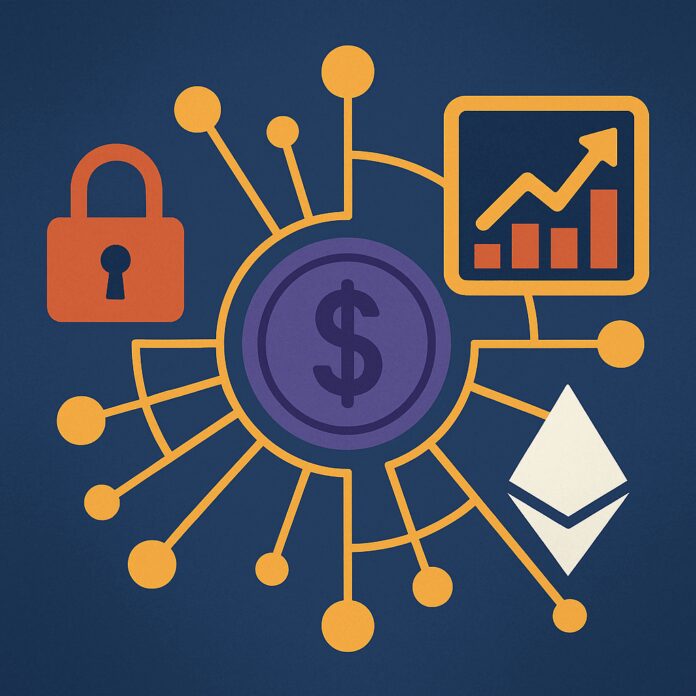Tokenization of stocks is one of the hottest trends in the crypto industry. Platforms like Robinhood and Kraken are now offering tokenized versions of public equities such as Apple or Tesla — and in some cases even private companies like SpaceX or OpenAI.
But a critical question remains: Are these stock tokens truly decentralized, or just centralized digital wrappers on traditional financial instruments?
What Tokenized Stocks Really Are
Tokenized stocks are blockchain-based representations of real-world shares, giving investors a way to buy and trade fractional equity around the clock.
However, as Cointelegraph points out, these tokens are heavily controlled by the issuing platforms and often come with serious limitations:
- Mandatory KYC/AML verification before purchase.
- Transfers restricted to whitelisted addresses, limiting who can receive tokens.
- The issuer’s ability to freeze or revoke tokens at any time.
- In many cases, tokens don’t confer direct shareholder rights such as voting or dividends. Instead, they represent a claim via a special purpose vehicle (SPV) rather than direct equity ownership.
This means most current tokenized stocks are far from truly decentralized, despite their blockchain-based appearance.
What True Decentralization Would Require
To meet the ideals of decentralization, tokenized stocks would need:
- Permissionless Transfers
Tokens should move freely between wallets without needing whitelist approvals or centralized oversight. - On-chain Enforcement of Legal Rights
Ownership of the token must directly translate to legal shareholder rights, like voting and dividends, automatically enforced through smart contracts. - Censorship Resistance
No party should be able to arbitrarily freeze or reverse transactions. - Full DeFi Composability
Tokenized stocks should integrate seamlessly with decentralized exchanges, lending platforms, and other DeFi protocols. - Regulatory Alignment
Laws and frameworks must evolve so companies can issue their stock natively on-chain, replacing off-chain registries.
Until these requirements are met, tokenized stocks will remain partially centralized hybrids.
Barriers to Full Decentralization
1. Securities Regulation
Regulators like the SEC require strict oversight, KYC, and reporting for equity trading. This makes it difficult for token issuers to operate permissionlessly while staying compliant.
2. Centralized Custody of the Underlying Asset
Most tokenized shares are held off-chain by custodians or SPVs.
If the actual equity remains under centralized control, the blockchain token is ultimately just a representation, not the asset itself.
3. Fragmented Liquidity
When multiple platforms issue tokens for the same stock, liquidity gets split across markets.
This fragmentation can reduce efficiency and create price discovery challenges, especially outside regular market hours.
4. Legal Ambiguity
It’s often unclear what token holders actually own. If the issuer collapses or defaults, do token holders have any enforceable claim?
For example, OpenAI publicly distanced itself from tokens claiming to represent its equity, leaving buyers in a gray area.
The Spectrum of Decentralization
Decentralization is not binary — it’s a spectrum.
Some tokenized stock models are more crypto-native than others:
- Platforms that provide legal ownership rights, backed 1:1 with actual shares held in trust.
- Hybrid approaches like Galaxy Digital tokenizing its own shares while embedding governance features directly into the blockchain.
- Fully decentralized frameworks where companies issue their equity directly on-chain, eliminating intermediaries entirely — a future vision not yet realized.
Today, Robinhood’s and Kraken’s offerings remain closer to the centralized end of the spectrum.
Can True Decentralization Ever Happen?
True decentralization will require breakthroughs in both technology and regulation:
- Legal innovation to allow blockchain tokens to directly replace traditional shareholder registries.
- Smart contract advancements to automate governance, dividends, and compliance.
- Regulatory collaboration, where securities regulators embrace programmable, on-chain equity markets.
Without these changes, most tokenized stocks will continue functioning like wrapped assets, much like stablecoins tied to centralized banks.
Implications for Investors and Platforms
- Investors must carefully examine whether a token actually grants legal equity rights or merely tracks price movements.
- Regulators will intensify scrutiny to protect consumers and prevent misleading marketing.
- Platforms will compete to build trust, improve compliance, and edge closer to decentralization while still meeting legal requirements.
- If successful, tokenized stocks could revolutionize equities by offering 24/7 global trading, fractional ownership, and direct integration with DeFi.
Conclusion
Robinhood and Kraken’s tokenized stocks are an important step toward merging traditional finance with blockchain, but they are far from the decentralized ideal.
Until legal, technical, and regulatory barriers are overcome, these tokens will remain semi-centralized instruments, offering convenience and innovation — but not the full promise of decentralized ownership. The journey toward truly decentralized tokenized equities has just begun, and its success will shape the future of both crypto and global capital markets.




